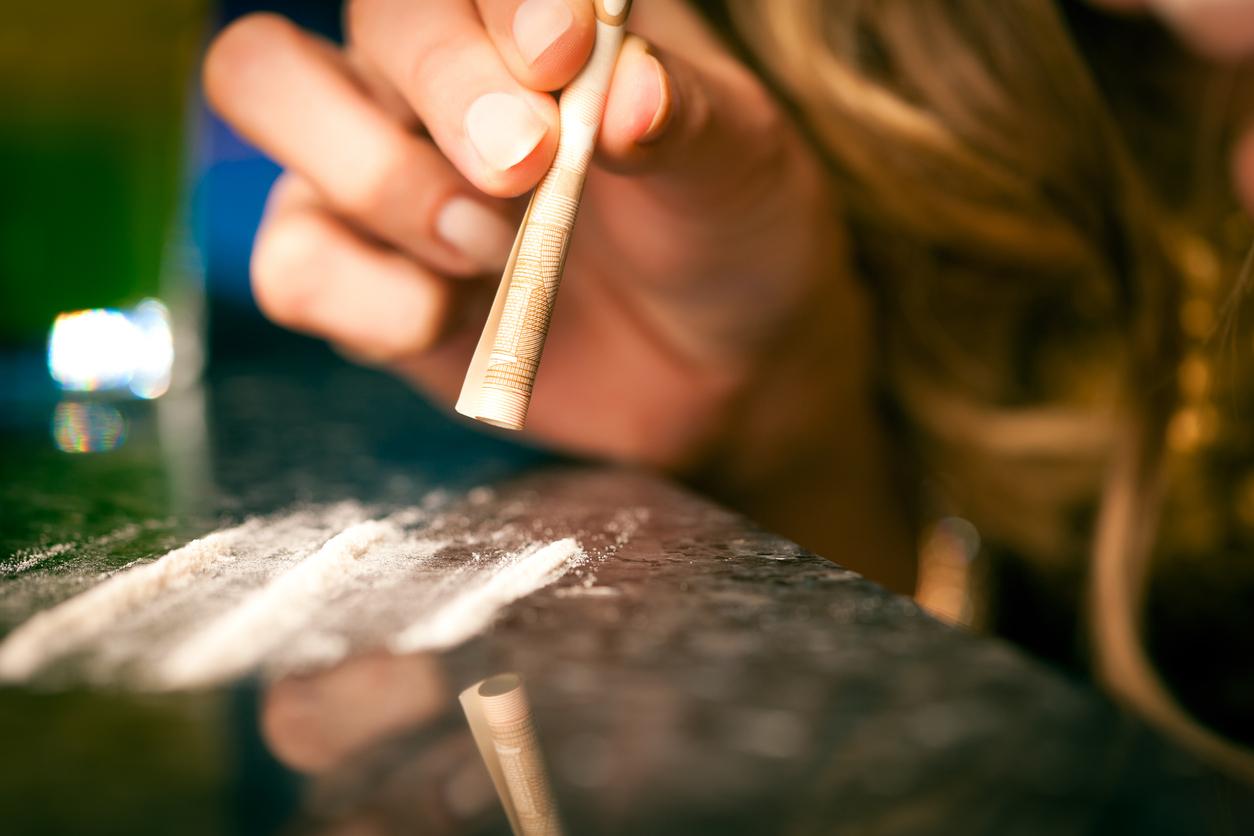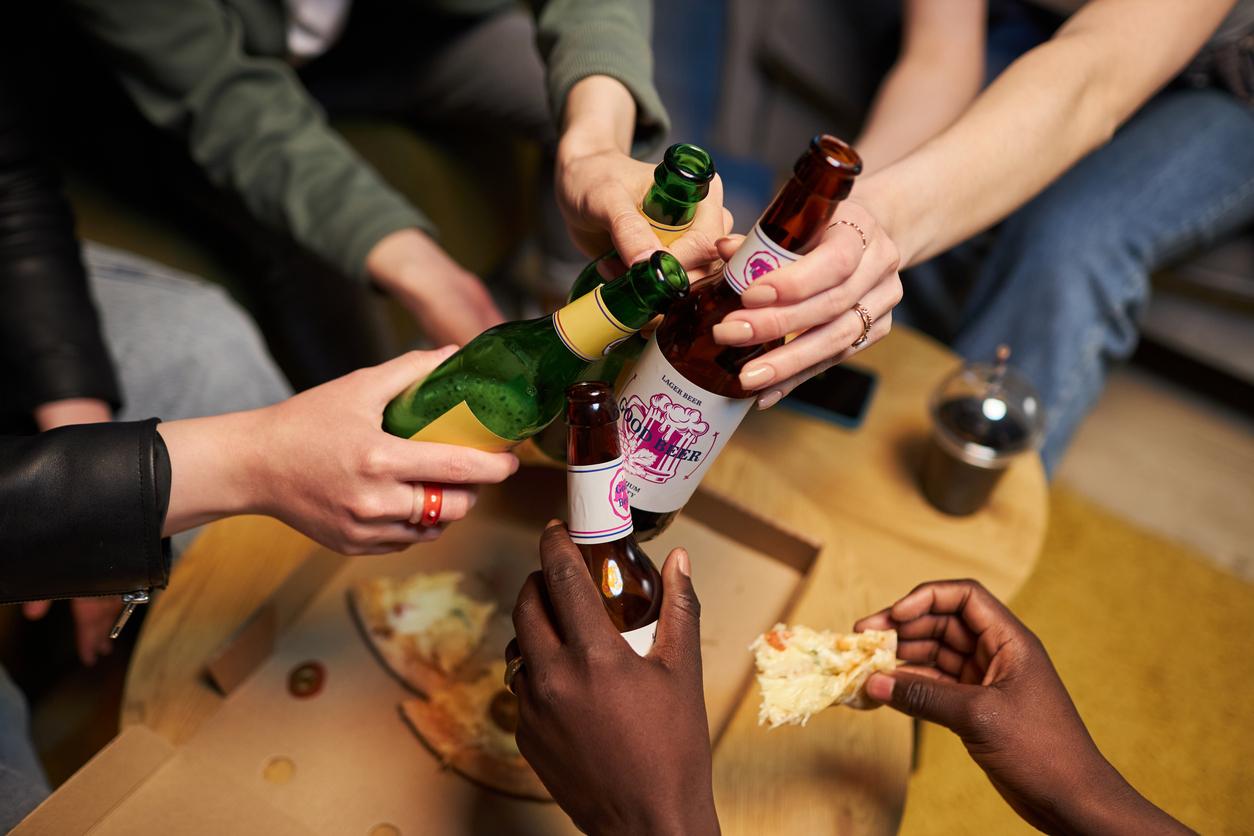It is in Occitania that the inhabitants consume the most alcohol daily (12.6%) reveals Public Health France on Tuesday.

On average, 10% of French people drink alcohol daily, but this varies by region. This Tuesday, January 14, while Operation Dry January is trying somehow to find a place in France, Public Health France has published a “prize list” of alcohol consumption by region. According to the French agency, Occitania comes first (in 2017, 12.6% of inhabitants aged 18-75 drank every day), followed by New Aquitaine (12.3%) and Hauts-de-France (11.5%).
Daily alcohol consumption “is significantly less frequent in Île-de-France (7.1%), in Normandy (7.9%) and in Pays de la Loire (8.1%)”, specifies the press release . What is more, it has been falling everywhere since 2000 in the country, especially “in Occitania, New Aquitaine and Île-de-France.”
On the other hand, concerning the weekly consumption of alcohol, the figures are higher. Nearly a third of French people (32.5%) drink at least once a week. Heavy binge drinking (six or more drinks on one occasion) is on the rise, especially in Brittany (20.5%) and Auvergne Rhône-Alpes. Overseas, the French are no longer left out either since 47.7% of Martinicans and 43.4% of Guyanese drink weekly.
In addition, the alcohols consumed are not the same depending on the region: in the North, in the East in Brittany, we drink more beer than in the rest of the country. In Nouvelle-Aquitaine, Occitanie and Auvergne-Rhône-Alpes, where wine production is very important, the inhabitants mainly consume wine.
Do not exceed two glasses a day
“These data confirm the trends observed in Europe (…) Behavior tends to become uniform. Thus, in France, there is a lower regular consumption and an increase in significant occasional consumption”” explains Public health France.
Many emergency visits directly related to alcohol were recorded in 2017. “For men, on a daily average and depending on the region, between 1.2% and 3.1% of emergency visits are related to directly with alcohol consumption” in 2017, warns the agency. A figure that rises to 7.3% for Reunion. “The majority of these are acute alcoholic intoxications”, it is specified. Women, on the other hand, are less affected by this phenomenon (between 0.3% and 1.4% of alcohol-related emergency visits in 2017).
In conclusion, Public Health France recalls that to limit the risks associated with alcohol, you must not exceed “10 glasses per week and 2 glasses per day”. It is also recommended to completely stop drinking at least two days a week in order to allow time for the body (and especially the liver which eliminates 95% alcohol) to recover.
Adverse effects on physical and mental health
Although alcohol consumption has halved in France over the past fifty years, it remains responsible for an average of 41,000 deaths per year. Long-term, regular alcohol consumption can lead to many problems. It increases the risk of developing cancer of the mouth and throat, esophagus, liver, colon and rectum and even of the breast. Also, drinking too often raises blood pressure and increases the risk of hypertension. This also promotes cerebral hemorrhages and can lead to heart rhythm disorders. Alcohol is also the main cause of cirrhosis of the liver, a chronic and irreversible disease characterized by progressive destruction of cells, replaced by fibrous tissue.
However, alcohol does not only affect physical health. Indeed, regular and excessive consumption would also be responsible for cognitive disorders (impaired memory, planning, attention and decision-making capacities). Not surprisingly, the earlier alcohol consumption begins, the greater the deterioration of the brain. Finally, excessive alcohol consumption is often associated by scientists with physical disorders such as anxiety and depression. Too much drinking would also have harmful consequences on sleep.
In order to encourage the French to reduce their alcohol consumption, associations launched this year Dry January in France, i.e. a month without alcohol, like the operation carried out every year in England since 2013. With us, the movement has much more difficulty to take than with our neighbors across the Channel. Indeed, while the government originally wanted to launch this campaign at the national level, it had to cancel it following pressure from lobbies, but the associations have maintained it with the means at hand. Today on the French official website of Dry January, only 8,136 people say they participate. By way of comparison, a year ago, in the United Kingdom, 4.2 million people had declared their intention to try to quit alcohol in the month of January.

.















